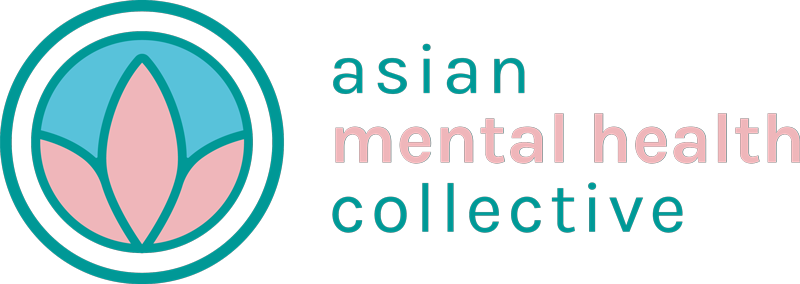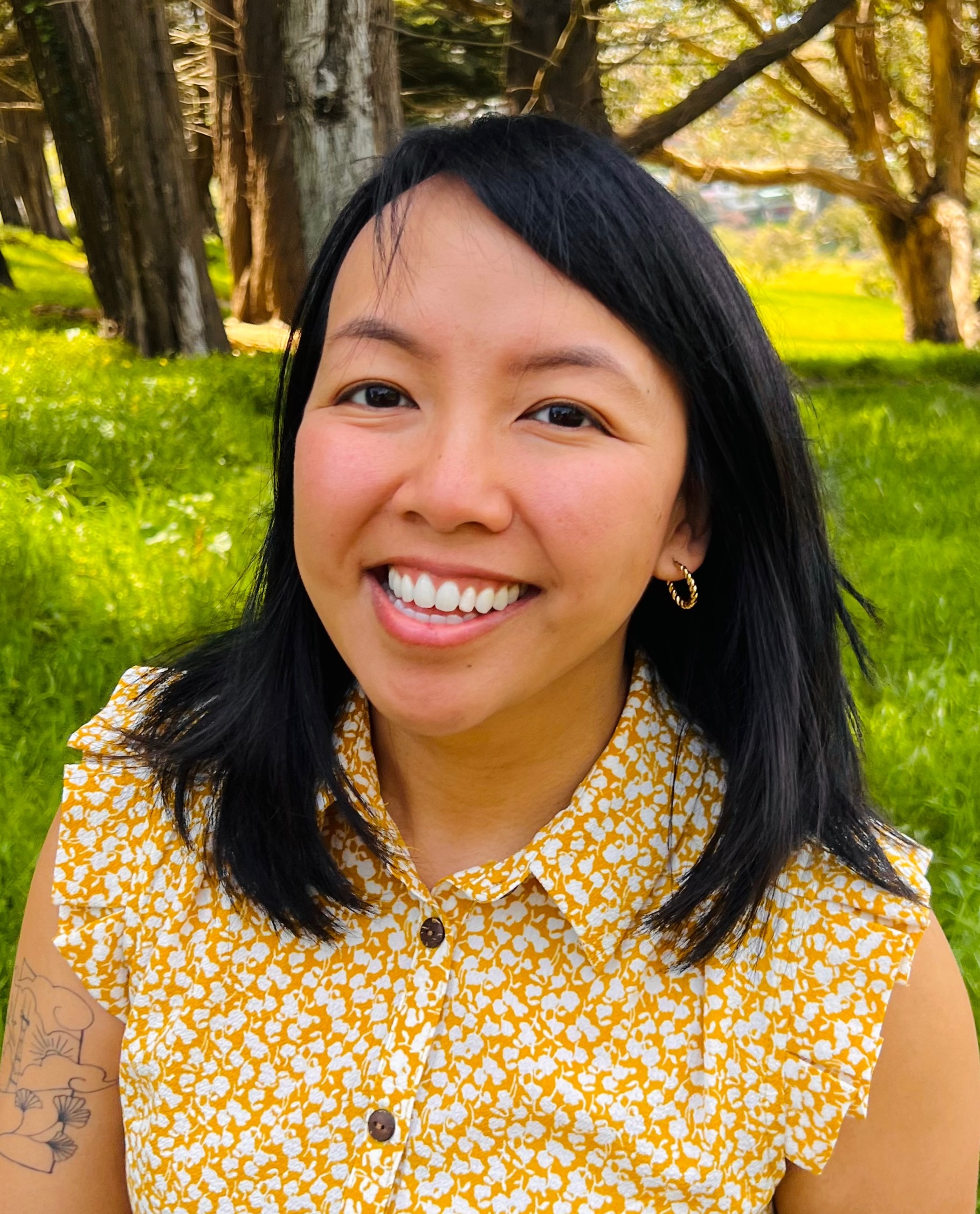Liana Huang, LCSW
Bio
My name is Liana Huang and I’m a bilingual (Cantonese and English speaking) Licensed Clinical Social Worker. I earned my Master of Social Welfare degree from the University of California, Berkeley and my Bachelor of Arts in Psychology and Chinese Studies from Occidental College. Prior to working for this private practice, I served as a social worker in schools in San Francisco, a wellness coordinator for a local youth non-profit, and a behavioral health clinician working with low-income, high need youth of color populations. I have worked with clients who presented with life transitions, anxiety, depression, ADHD, interpersonal challenges, imposter syndrome, low self-compassion, trauma, and other difficulties.
My practice is from a strengths-based, trauma-informed perspective with a client-centered, non-judgmental, social justice framework. I aim to create a space where my clients can safely, authentically express their emotions, look deep within, gain self-awareness, and pursue growth.
Let’s be real — the last few years have been HARD with the global pandemic that appears never ending. A pandemic that has directly impacted or even upended our feelings of safety (physical, emotional, racial), our connections with others, and simply life as we know it. During this period filled with stressors and transitions, coping strategies that we have used in the past may no longer be enough and we may feel like we are constantly in survival mode – just trying to make it through another day. I am committed to helping clients, not just survive, but thrive.
Therapy for Children of Immigrants & Asian Americans
As a second-generation, bilingual (I provide therapy in Cantonese and English, 我可以用廣東話和英文來提供治療) and bicultural Chinese American woman whose parents immigrated from the Pearl River Delta to San Francisco, I can relate to and understand the specific struggles of children of immigrants. The pressure of living up to parental expectations for all that they have sacrificed for us. The challenge of not feeling [fill-in-the-identity] enough. The difficulties of balancing various cultural norms and beliefs. The lingering effects of intergenerational trauma. The conflicts in communicating and connecting with parents and other elders. The extra responsibilities of being the family’s interpreter, care provider, or even their therapist. I specialize in working with children of immigrants to understand and mitigate these challenges.
I see you, I understand you, and I can support you.
Therapy for Trauma, Depression, & Anxiety
Many of my clients have experienced trauma that has shaped their lives, that affects how they think, feel, or face the world. Some struggle with sleep, low motivation, disinterest in being around others, feelings of helplessness, disconnection, depression, and nervousness. Others feel pressure to live up to expectations from family, friends, and society in general. If this sounds like you, you are not alone. And you don’t have to live that way anymore.
In our work together, we can find the tools:
-
to help you understand and manage your feelings of anxiety and depression
-
to identify ways that your past trauma is negatively impacting your current self
-
to help you come to terms with the trauma that you’ve experienced
-
to strive for an empowered and grounded self
-
to improve your connection to others and to yourself
-
and to find the power to reclaim your future
Therapy for Highly Sensitive Persons (HSP) and Empaths
You often feel emotionally exhausted and overwhelmed. You experience others’ feelings without warning. You’re often moved by a touching scene in a movie. You are easily bothered by fine sensory details that others don’t seem to notice: such as background sounds, the scratchy label on your shirt, or fluorescent lights. You are sensitive to the vibes of the environment and those around you. Watching the news can ruin your day. You feel overwhelming grief at events happening worldwide. You were often told that you’re “too sensitive.”
If you identified with some of these statements, you could be a Highly Sensitive Person (HSP) or empath. To be an HSP or empath is to experience the world through a lens that many people do not. As a highly sensitive person/empath myself, I understand what it is like to feel very deeply. It’s a gift to easily understand other people’s energies and emotions, AND it can feel overwhelming and emotionally exhausting at times. Let’s work together on finding a healthy balance between supporting our loved ones while also creating boundaries to maintain our personal well-being. Let’s take a closer look at your emotions, feelings, and sensitivities to better understand and manage them. Working with a specialized therapist can help you gain increased awareness and tools to heal, explore, and grow your sensitivities into the real gifts they are.
Therapy for Children, Teens, & Families
As difficult as the pandemic has been for us adults, it has been equally challenging if not more so for our young ones to navigate. You may have noticed that your child or teen has been struggling more than usual – around the home, at school, or with friends. They may avoid communicating these stressors with you which can leave you feeling helpless.
A trusted relationship with a nurturing therapist can provide a safe, non-judgmental space for your child to explore topics they feel uncomfortable discussing with their parents. Therapy can help your child or teen learn communication skills and coping strategies to adapt to life’s past, present, and future challenges. As a therapist for children, teens, and families who has extensive experience serving in all levels of schooling with a Pupil Personnel Services Credential (PPSC), I can support and guide your child in navigating depression, anxiety, ADHD, interpersonal challenges, life transitions, low self-esteem, and more.
Working with a therapist can also help you grow your parenting skills and find new ways to communicate with your child. As a therapist for both children and parents, I can help you better understand your child and become an even better parent. We can even work together as a family to understand and change what’s not working. Sometimes children and teens cannot ask for help themselves. If you see your child struggling, please reach out. I am here and ready to help.
Therapeutic Modalities
In treatment, I implement different modalities including cognitive behavioral therapy, solution-focused therapy, narrative therapy, drama therapy, motivational interviewing, mindfulness techniques, expressive arts therapy, play therapy, Eye Movement Desensitization and Reprocessing (EMDR), and psychoanalysis.
I provide individual therapy sessions for 50 minutes/$170 per session.
Please feel free to contact me with any questions or for a free 20-minute consultation to see if we are a good fit. It would be my privilege to walk alongside you on your healing journey.
Email: LianaHuangTherapy@gmail.com
Qualifications
License Number: LCSW #119082
License State: California
Practice Information
Sliding Scale / Reduced Fee Accepted: Yes
Types of Insurance Accepted: Private Pay, Out of Network
Lotus Therapy Fund Provider: Yes
Location
San Francisco, CA, USA
Languages
Cantonese, English
Modalities
Individuals
Therapy Offered
Telehealth/Teletherapy
Types of Therapy
Cognitive Behavioral Therapy (CBT), Trauma-Focused, Solution Focused Brief Therapy (SFBT), Play Therapy, Narrative Therapy, Motivational Interviewing, Expressive Arts, Drama Therapy (RDT), Eye Movement Desensitization and Reprocessing (EMDR), Psychoanalytic
Issues
Attention Deficit Hyperactivity Disorder (ADHD), Anxiety, Women's Issues, trauma-ptsd, Traumatic Grief, Stress, Self Esteem, Relationship Issues, Racial Identity, Personal Growth, Life Transitions, Grief, Family Conflict, Emotion Regulation, Depression, child-or-adolscenet
If you are in a life threatening situation - don’t use this site. Call +1 (800) 273-8255 to get immediate help. Clinicians are listed in the Directory based on references, self-reported training and experience . Inclusion does not constitute any form of endorsement of the clinician’s professional skills. AMHC does not receive commission from any practitioners listed in our Directory.


